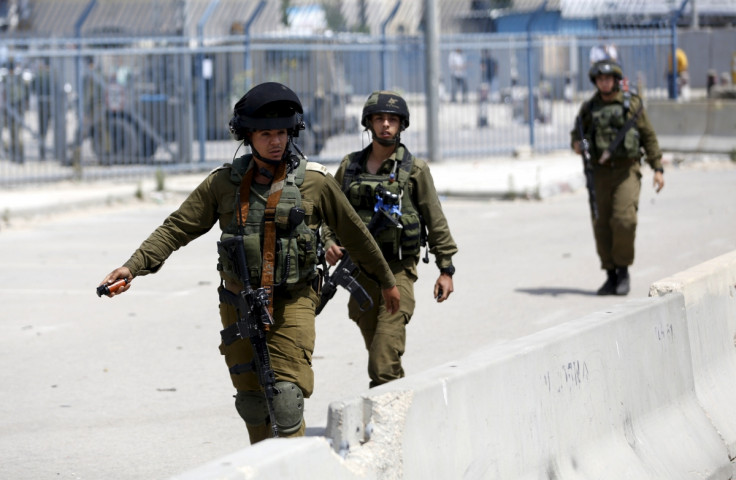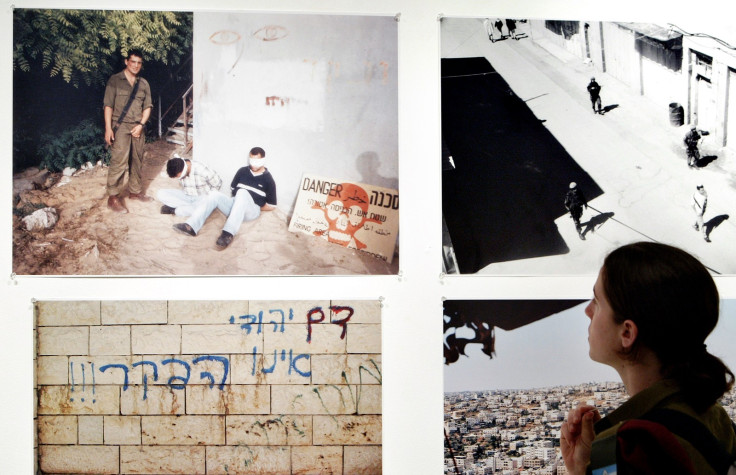Breaking the Silence: Israeli whistle-blowers under fire after Gaza war crime claims

Ever since Breaking the Silence first began publishing the anonymous testimony of soldiers serving in the West Bank and Gaza, it has been a thorn in the side for Israel and its military, the Israeli Defence Forces (IDF). Unlike many NGOs who monitor the conditions of Palestinians in areas occupied by Israel, Breaking the Silence accounts come from soldiers who were there and often even carried out abuses, making them far harder for Israel to deny.
When it is not putting together reports that run to hundreds of pages and include various allegations of abuse and malpractice on the part of Israeli soldiers, Breaking the Silence is touring campuses and speaking about the occupation of the West Bank and regular incursions into Gaza, or organising trips into divided Hebron for foreign diplomats, showcasing the heavy restrictions under which Palestinian residents of the city live.
It relies on the testimony of serving and former IDF soldiers, many of which have served as conscripts as Israel requires all young men and women to carry out military service. Those who refuse are sometimes permitted to take administrative roles within the IDF, but others are jailed.
In 2004, when the NGO first published its testimonies relating to crimes committed by IDF troops, the Israeli government raided Breaking the Silence's exhibition in Tel Aviv, but was not able to discover the identities of the whistle-blowers. The state attorney's office tried to force the charity – which is funded by at least three EU nations – to reveal its sources through the courts, but its attempts failed.
In the years since, various administrations have tried to curtail the actions of Breaking the Silence. In 2009 Ha'aretz reported that the Israeli government had asked the Netherlands to freeze its funds after it released the anonymous testimony of 30 IDF soldiers who served in Operation Cast Lead. It had earlier been revealed that the Dutch embassy in Tel Aviv had given the group €20,000 (£15,500) to help put together the report.

In 2016, it has been Israeli Prime Minister Benjamin Netanyahu and his defence minister, Moshe Ya'alon, that have spearheaded the fight against the group. Netanyahu and Ya'alon announced a probe into the NGO in March after claims that it had received classified military material. Later that month Ya'alon accused Breaking the Silence of treason, and efforts were made to restrict EU funding of Israeli NGOs.
Earlier this year an Israeli court told Breaking the Silence to hand over materials relating to abuses conducted during Operation Protective Edge in 2014, in which 2,100 Palestinians and 73 Israelis were killed. The group appealed against the judgement and a court in Petah Tikva is due to hear arguments on 22 May. The case relates to dozens of testimonies regarding the war in Gaza that the group published, eight of which have become the subject of formal investigations by the IDF.
Breaking the Silence has always opposed handing over their full testimonies in case it leads to soldiers being identified and prevents others from speaking in the future. Speaking to Ha'aretz, Breaking the Silence executive director Yuli Novak said the state prosecutor was "taking an unprecedented and worrying step that endangers the organisation and its work by trying to force us to reveal witnesses' identities".
The IDF claims that the organisation has information relating to "grave suspicions" about a serving soldier and that it needs the information to further the investigation. However, Breaking the Silence alleges that the information the state is asking for relates only to minor infractions, and is an attempt to undermine the group's work.
"It is even more puzzling and bothersome that the attorney's demand is part of an investigation of junior soldiers for offences that are not severe, in the very least, that were described in testimonies or took place in Protective Edge and as far as we know have nothing to do with killing or causing injury," the group said.
© Copyright IBTimes 2025. All rights reserved.






















